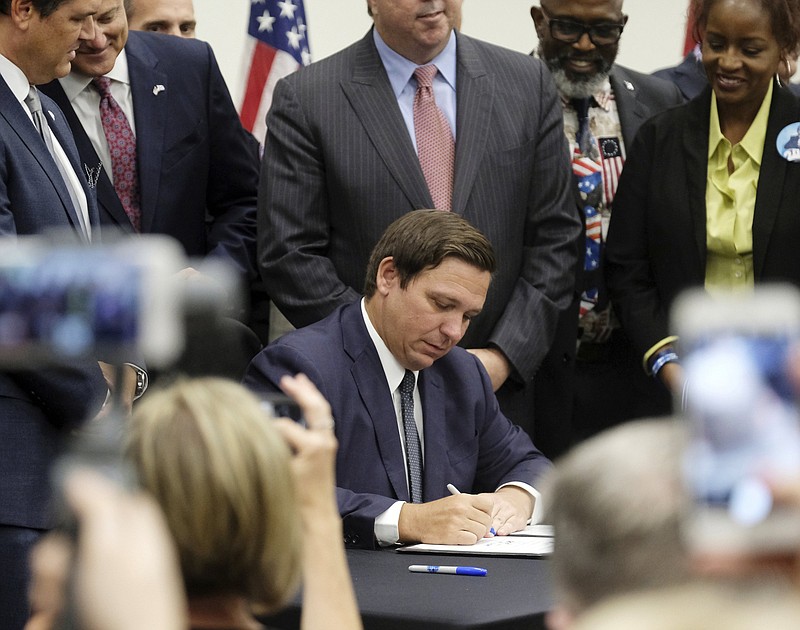TALLAHASSEE, Fla. -- A federal judge has struck down portions of a Florida immigration enforcement law that was a priority of the state's Republican governor, saying in her ruling that the measure was racially motivated.
U.S. District Judge Beth Bloom on Tuesday rejected sections of the law that ban local government sanctuary policies and require local law enforcement officials to make their best effort to work with federal immigration authorities.
The office of Gov. Ron DeSantis, who signed the bill into law with much fanfare in 2019 as a priority of his administration, said Wednesday that it would appeal.
Bloom repeatedly said the law was racially motivated and that its supporters showed no evidence that it was needed to lower crime. She said the sponsor of the measure, Senate Bill 168, was guided by anti-migrant hate groups such as Floridians for Immigration Enforcement.
"Allowing anti-immigrant hate groups that overtly promote xenophobic, nationalist, racist ideologies to be intimately involved in a bill's legislative process is a significant departure from procedural norms," Bloom wrote. "This involvement strongly suggests that the Legislature enacted SB 168 to promote and ratify the racist views of these advocacy groups."
Bloom cited communication between Floridians for Immigration Enforcement and state Sen. Joe Gruters' staff. Gruters, the chairman of the state Republican Party, sponsored the bill.
"On many occasions during the 2019 legislative session, [Floridians for Immigration Enforcement's] racial animus and discriminatory intent were made apparent to Senator Gruters and his staff but were ignored," Bloom wrote.
Gruters didn't immediately respond to a message left on his cellphone.
In 2019, DeSantis signed the bill at a campaign-style appearance in the conservative panhandle region, unlike his other, more subdued bill-signing events. An overflow crowd dotted with red "Make America Great Again" hats cheered in support of the bill.
The governor's office defended the law Wednesday.
"Yet again a federal trial court judge partially enjoins a plainly constitutional state statute," DeSantis spokeswoman Taryn Fenske said. "We disagree with the judge's ruling and expect to win on appeal."
Democrats and immigration advocates praised the ruling.
"Floridians deserve a legislature that prioritizes people over politics, not one that repeatedly squanders taxpayer money defending extreme legislation designed to bolster the Governor's political ambitions.
Florida has and will always be an immigrant state," Democratic state Rep. Carlos Guillermo Smith said in a statement.
Many of the bills DeSantis has signed into law have been challenged in court, and he's often lost in lower courts.
The state has appealed those rulings, including an "anti-riot" law inspired by Black Lives Matter protests around the country; a ban on vaccination passports; and punishments for large social media companies, such as Twitter and Facebook, that block people based on political posts. He's also being challenged on state orders to ban mask mandates in schools.
